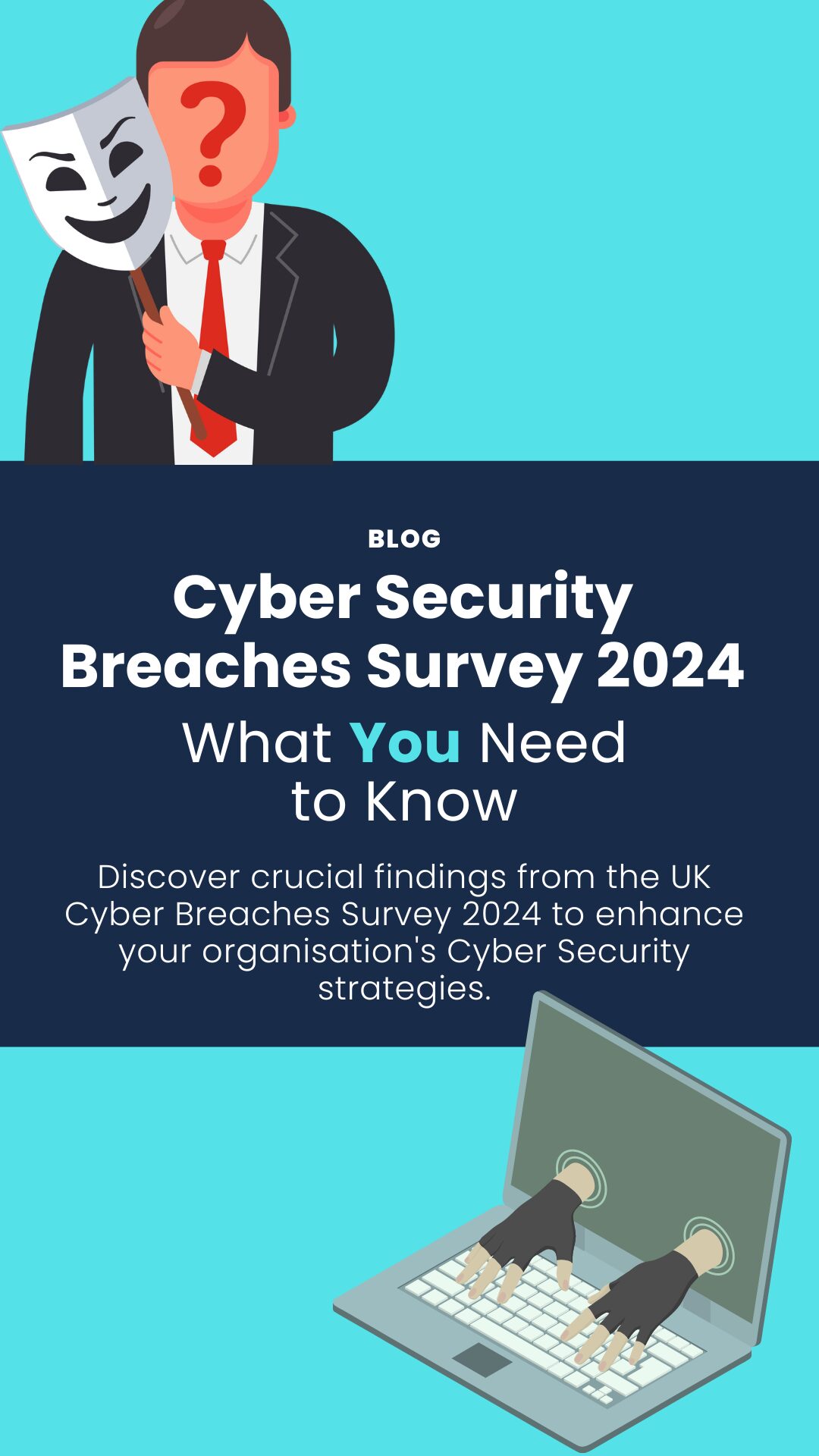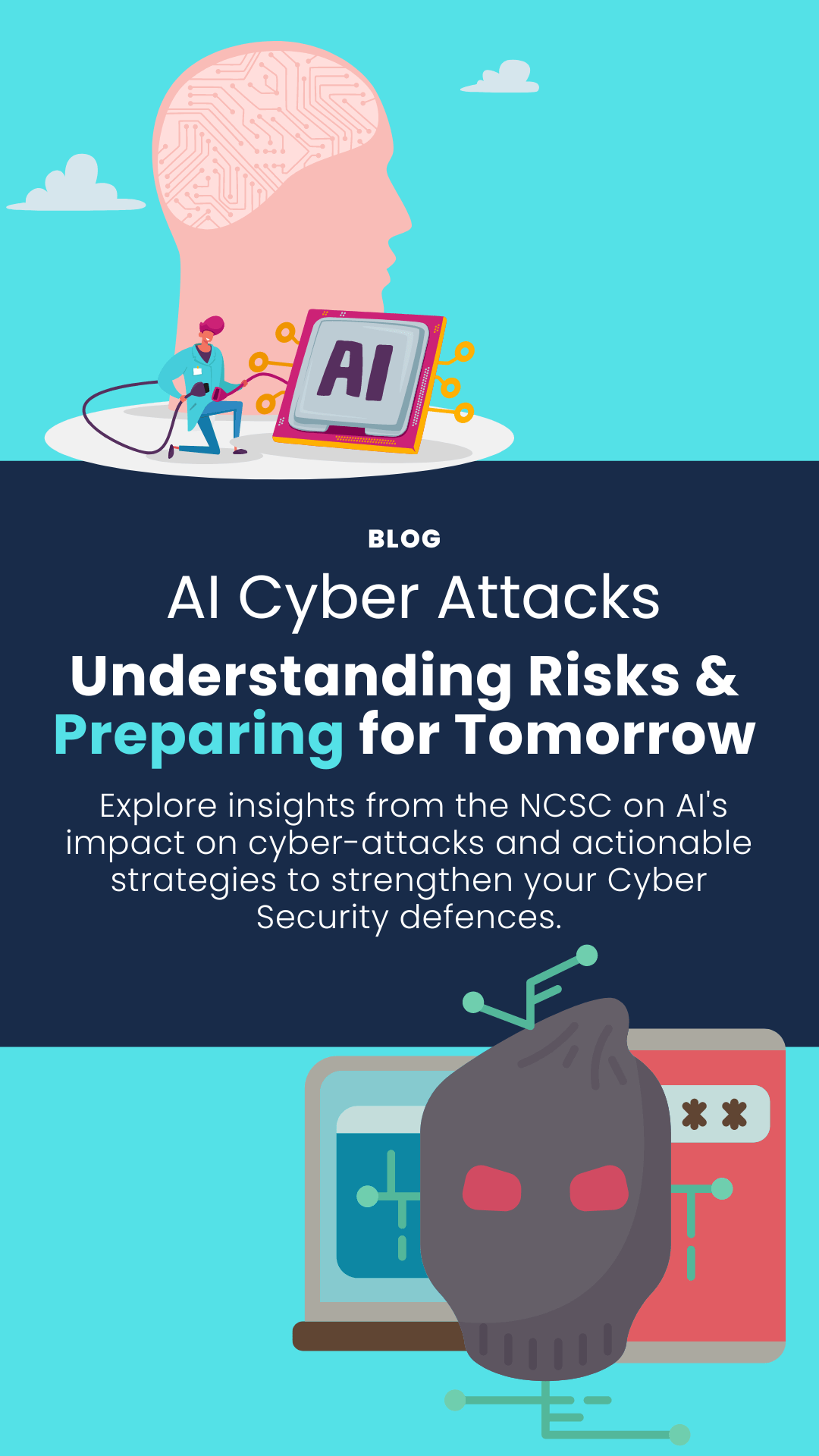As a Cyber Security decision maker, you’re no stranger to the persistent menace of phishing attacks.
You understand the gravity of the situation, and it’s a cause for concern that your employees may not possess the cyber awareness to fend off manipulative tactics.
It’s only natural to be concerned about the readiness of your team to face these challenges.
In this blog, we’ll explore the psychology behind phishing and how tailored cyber awareness training can strengthen your defences.
Understanding the Psychology of Phishing
In the ever-evolving world of Cyber Security, phishing remains a prevalent threat. What makes these attacks particularly worrisome is their ability to prey on our human instincts and emotions.
Phishing is a form of social engineering where cyber-criminals impersonate trusted entities, such as colleagues or reputable organisations. They employ a range of tactics, including:
- Emails
- Text messages
- Phone calls
Their goal is to deceive individuals into clicking on malicious links or disclosing sensitive data. To effectively combat phishing, it’s crucial to grasp the psychological triggers that make these attacks so effective.


Manipulation and Human Psychology in Phishing attacks
Expertly crafted phishing attacks manipulate human psychology. They exploit emotions like fear, greed, and stress, aiming to bypass rational thinking and elicit impulsive reactions.
Even individuals well-versed in Cyber Security can fall prey to these tactics because the deceptive messages are often remarkably convincing.
The Role of Authority
Phishers often pose as figures of authority, such as banks, esteemed companies, government agencies. People tend to trust these implicitly, making them attractive targets for attackers.
Another common method used is to pose as an important individual within a company, to target internal employees. This involves tricking your staff and deceiving them into believing that you hold significant authority.
Personalisation Adds to the Deception
Another effective tactic employed by phishers is personalisation. When attackers impersonate someone familiar to the victim, the emotional connection makes the ruse even more convincing. This personal touch increases the likelihood of falling for the phishing attempt.
Social Engineering Tactics
Social engineering tactics, which exploit human psychology for deception, include:
The Benefits of Cyber Awareness Training for Employees
Training and phishing testing help employees become more aware and resistant to manipulative tactics. They become proficient at recognising phishing attempts, safeguarding your business, and preventing potential security breaches.
Engaging employees in the critical process of Cyber Security can be challenging.
But by using these strategies, you can reduce the chance of falling for social engineering attacks and improve your Cyber Security.
What Topics To Include in Cyber Awareness Training?
Here are some of the key topics it should cover:
You have probably heard of these:
- Phishing Awareness: Recognising and dealing with carefully crafted phishing attempts.
- Password Security: Creating and managing strong passwords.
- Safe Browsing and Downloads: Identifying safe online behaviour and downloads.
- Email Security: Secure email practices and the risks of sharing sensitive data
- Security Updates: Keeping software and devices up to date.
- Data Backup: Regularly backing up critical data to prevent loss.
Did you know you could be implementing these topics:
- Incident Reporting: Reporting security incidents and suspicious activities.
- Data Protection: Proper handling and protection of sensitive and personal information.
- Social Engineering Tactics: Understanding manipulative tactics used by cyber-criminals.
- Mobile Device Security: Securing smartphones and mobile devices.
Real World Case Studies
Preserving Patient Privacy: How Healthcare Outsmarted Phishing with Targeted Training
In the healthcare industry, where safeguarding patient data is paramount, cyber awareness training for employees played a pivotal role in reducing the risk of falling victim to social engineering techniques.
Here’s how it worked:
Scenario-Based Training
Training sessions included scenario-based simulations mirroring real-life healthcare situations. These scenarios often tapped into employees’ empathy, as healthcare professionals are naturally compassionate individuals.
Recognising Emotional Manipulation
The company educated employees on the emotional manipulation tactics commonly used in phishing attacks. They learned how to identify emails that attempted to elicit sympathy, urgency, or fear and their instructors encouraged them to report them promptly.
Fostering a Reporting Culture
The healthcare organisation cultivated a culture of reporting, incentivising employees to promptly report suspicious emails. This ensured that we addressed potential threats promptly, preventing data breaches.


Guarding Intellectual Property: A Tech Company’s Triumph Over Phishing Threats
In the tech sector, protecting intellectual property stands as a top priority. The success story of this technology company serves as a prime example of how phishing training and testing effectively reduced the risk of employees succumbing to manipulative tactics.
Tailored Simulations
The phishing training programme included simulations closely resembling the tactics used by hackers seeking access to proprietary information. These simulations were tailored t to real-life attack scenarios encountered by employees in the tech sector.
Cultivating Critical Thinking
The Cyber Security company trained employees to think critically when receiving unsolicited emails or encountering requests for sensitive information. They learned to question the legitimacy of emails and to verify the identities of senders.


Hands-On Practice
Ongoing testing and simulations provided hands-on practice in recognising and resisting manipulative tactics, empowering employees to apply their knowledge effectively.
Empowering a Resilient Workforce: The Impact of Cyber Awareness Training and Testing
Through focused training and testing, employees gain increased awareness and a strong resistance to manipulative tactics. They become proficient in recognising phishing attempts, protecting valuable intellectual property, and preventing potential security breaches.
This action reduces the likelihood of falling for social engineering tricks and enhances Cyber Security defences.
Looking for Cyber Security Training UK?
If you would like to chat to our team of experts about the best Cyber Security awareness training for your business, please contact us on 0121 663 0055 or email enquiries@equilibrium-security.co.uk for a free quote.
Ready to achieve your security goals? We’re at your service.
expertise to help you shape and deliver your security strategy.



